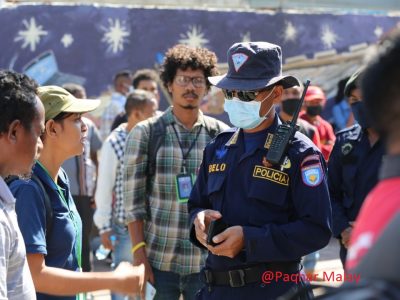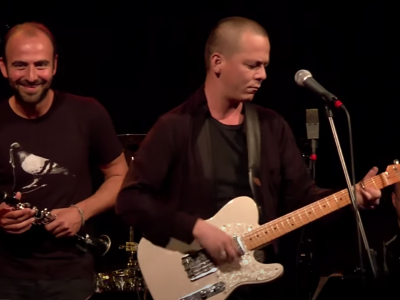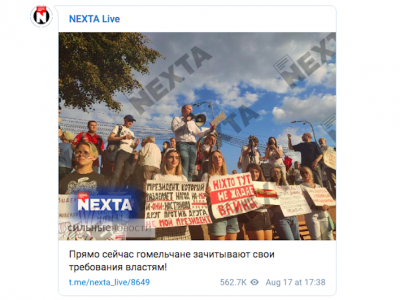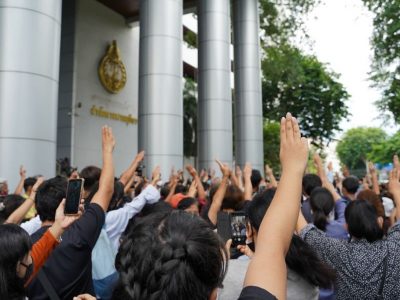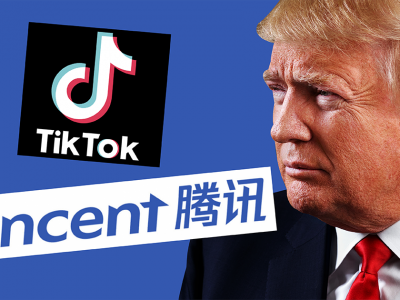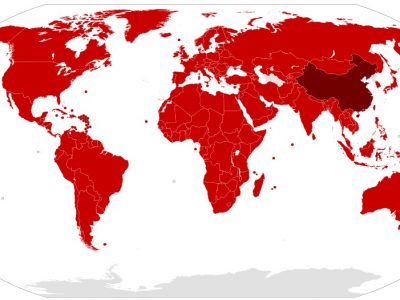Stories about Censorship from August, 2020
Anonymous group hack reveals hidden government data about COVID-19 cases in Nicaragua
The hack revealed a surplus of 6,245 positive COVID-19 cases in Nicaragua that were previously unknown to the public.
Concerned citizens petition Timor-Leste authorities to drop planned revival of defamation law
"This proposed law is to protect those in power from criticism when they commit any act of corruption and any other acts of crime."
Why women’s rights and digital rights go hand-in-hand on Namibian Twitter
In Nambia, a Twitter campaign to legalize abortion drew waves of attacks against feminist activists, but as a result, parliament has agreed to discuss Nambia's outdated abortion laws.
‘Uyghur pop music humanizes and amplifies their hopes': Interview with musicologist Elise Anderson
"Uyghur pop is a source of both entertainment and rich inner life. Another role it can play is in humanizing and amplifying Uyghur hopes, aspirations, and lives."
How one Telegram channel became central to Belarus’ protests
A channel on the Telegram messeng er service run by four Belarusian journalists in Poland has become a crucial source of information on the political upheavals in their homeland
Indonesian students expelled from school face treason charges for joining a protest on Papua
"Khairun University should support academic freedom and free expression, not expel students peacefully expressing their views."
An earthquake shook Tanzania. A new law prohibits citizens from speaking about it online.
Revised online content regulations in Tanzania prohibit talking about pandemics, natural disasters or politics without government approval. Is it possible to control essential online conversations? If so, at what cost?
‘This is a partisan movement of a partisan nation': a Belarusian poet reflects on her homeland's turmoil
"The greatest weakness made visible in these past months has been how little the state knows its own people," says poet Valzhyna Mort
Meet the artist embroidering Belarus’ protests
From faraway Prague, the Belarusian artist Rufina Bazlova is paying homage to the protests in her homeland by depicting them in traditional Belarusian embroidery.
Human rights defenders and journalists under attack in Southeast Asia
The past two weeks saw several disturbing cases of arrests, convictions, and raids targeting human rights activists and journalists in Thailand, Cambodia, Malaysia, and Vietnam.
Belarus shuts down internet as thousands protest election results
As Alexander Lukashenka won a sixth consecutive term as president on August 10, Belarusians across the country faced difficulties getting online. Digital rights activists blame the authorities; the authorities blame foreigners.
How the murder of musician Hachalu Hundessa incited violence in Ethiopia: Part I
In the wake of musician Hachalu Hundessa's murder, Ethiopia has struggled to come to terms with the violence and turmoil that erupted along ethnic and religious faultlines.
What will a US ban on WeChat mean for Chinese netizens?
While many in the West have criticized Trump's ban, some overseas Chinese dissents see the decision with positive eyes.
COVID-19 and China's information control policy
China’s strategy to control information and its consequences has become a global concern.
The chilling tale of mass surveillance and spying in Rwanda
Rwanda justifies its tight control over media freedom, suppression of dissent, and hostility toward opposition as matters of national unity and security.
In the age of misinformation, who holds the power to categorize the ‘truth'?
Over time, the categorization of information can result in the dominance of a single world view, making platforms like Facebook, Twitter and Google the central arbiters of truth.
Moderate globally, impact locally: A series on content moderation in the Global South
''Even as the platforms have grown and spread around the world, the center of gravity of these debates continues to revolve around D.C. and San Francisco.''
Digital rights remain under threat in Malawi despite historic win for democracy
Will the change in the country's leadership bring about meaningful changes to ensure that Malawians enjoy human rights in the digital space?
Despite attacks on press freedom, Nicaragua's digital media landscape is still flourishingMedios digitales se desarrollan en Nicaragua pese a represión
At least 24 new media outlets have been created since 2018, and the already established media outlets are adapting to produce multimedia content.Al menos 24 nuevos medios han sido creados y los medios establecidos se han adaptado para producir contenido multimedia.



